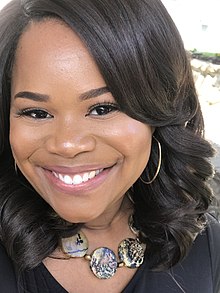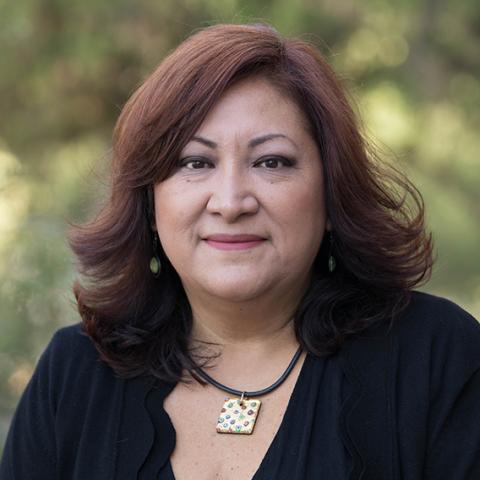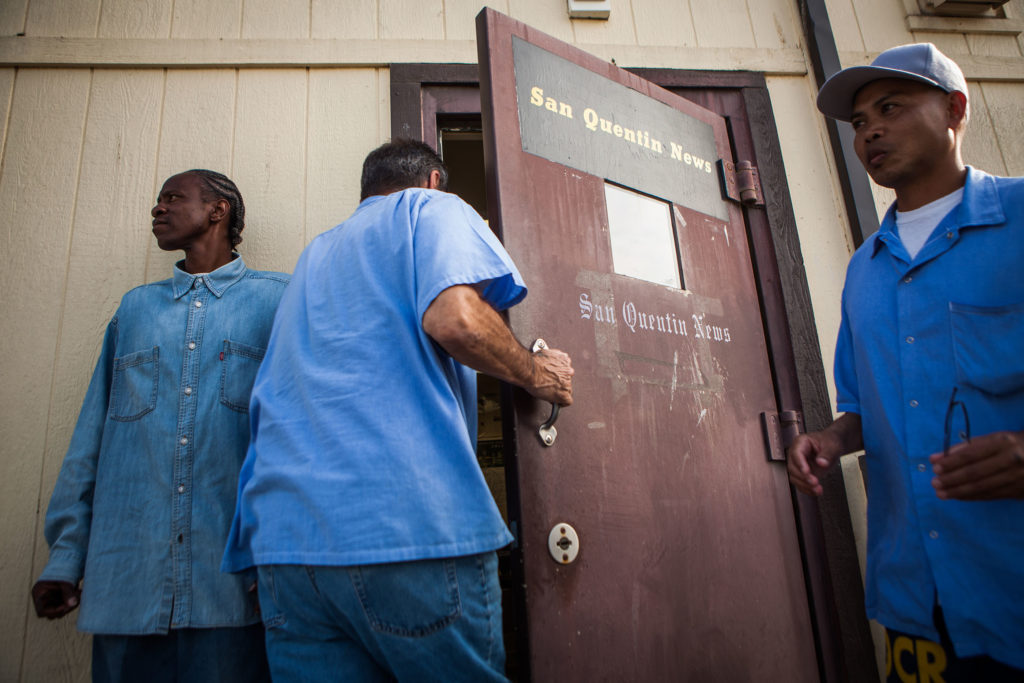Citizen Journalism and News on Digital Platforms
Scholars & Thought Leaders
Allissa V. Richardson
Allissa V. Richardson is assistant professor of journalism at USC Annenberg. She researches how African Americans use mobile and social media to produce innovative forms of journalism — especially in times of crisis.

Deen Freelon
Deen Freelon is an associate professor in the School of Media and Journalism. His research covers two major areas of scholarship: 1) political expression through digital media and 2) data science and computational methods for analyzing large digital datasets. He has authored or co-authored more than 30 journal articles, book chapters and public reports, in addition to co-editing one scholarly book.

Gada Mahrouse
Gada Mahrouse is Associate Professor at the Simone de Beauvoir Institute, Concordia University where she teaches and researches in the areas of critical race studies, cultural studies, transnational feminist and post/de-colonial theories. Her first book, entitled Conflicted commitments: Race, privilege and power in transnational solidarity activism, focuses on the challenges of solidarity across asymmetrical power racialized relations (McGill Queens University Press, 2014).

Karen Rundlet
head of journalism at Knight Foundation. As a director in the Journalism Program, her focus is on investing in new methods and models to advance excellence in journalism and civic media as a way to support informed, local communities. Before entering the field of philanthropy, Rundlet worked as a journalist at the Miami Herald, where she developed the newsroom’s first-ever video studio and led initiatives to make video integral to the MiamiHerald.com audience experience. She also contributed business reports to various public radio newsrooms, including WLRN/Miami Herald News and American Public Media’s “Marketplace.”

Jessica Retis
Associate Professor in the School of Journalism, Director of the Master’s in Bilingual Journalism and Affiliated Faculty with the Center for Latin American Studies and the Human Rights Practice Program at the University of Arizona.

Esra’a Al Shafei
Esra’a Al Shafei is a Bahraini civil rights activist, blogger, and the founder and executive director of Majal (Mideast Youth) and its related projects, including CrowdVoice.org. Al Shafei is a senior TED fellow, an Echoing Green fellow.

Film & Video
Hong Kong Police Livestream Protests on Facebook
The battle over the future of Hong Kong is playing out on a fresh front as police intensify their crackdown on the press. New regulations allow the police to say who is—and who isn’t—a journalist.
Source: VICE
Video Can Create a Just Society(2018)
“We live, at the moment, in a country where basic rights are really being violated,” Yvette Alberdingk Thijm told The Atlantic at the 2018 Aspen Ideas Festival. Thijm is the Executive Director of WITNESS, a global team of activists that empowers citizens to use video and technology to protect and defend human rights. Thijm argues that bystander videos are a powerful addition to criminal processes across the world. “There’s a real need to understand how video can help people prove what happened,” she said. “You have a right to film.”
Source: The Atlantic
Sharing the Syrian War on YouTube for 7 Years (2021)
Abdullah “AJ” Jabbar has been vlogging his life in Syria for the past seven years, beginning when he was 13. His videos offer a unique look at complex country and conflict.
Source: VICE
Using Mobile Phones to Empower India’s Poor (2014)
In rural India, where Internet penetration can be less than one percent (leading to a “dark” media zone), journalist Shubhranshu Choudhary started a mobile phone network to help people voice local issues and concerns. Since CGNet Swara launched in 2010, citizens have called in more than 300,000 reports, and 4,700 fact-checked stories have been aired and shared on the CGNet Swara website and beyond.
Source: National Geographic
First-ever prison-produced podcast ‘Ear Hustle’ lets you listen to real stories of incarcerated life (2017)
Prisoners inside one of California’s prisons are getting the opportunity to be heard — behind bars and beyond. “Ear Hustle” is a podcast produced entirely by inmates at San Quentin, offering listeners a rare look at inmate experiences, from race relations to sharing a tiny cell. Jeffrey Brown reports.
Source: PBS NewsHour
How Smartphone Cameras Told The Story Of Police Brutality (2020)
In the last decade, the smartphone has become a tool for witnessing police violence toward African Americans. From the 2009 killing of Oscar Grant to the 2020 killing of George Floyd, we reviewed the footage and talked to the people who captured it, to see how the accounts of racial injustice became clearer as the phones evolved.
Source: Wall Street Journal
Books & Articles
San Quentin’s Breakthrough Prison Newsroom (2020)
A huge podcast hit and a revived newspaper mean that policymakers really have to listen.
Source: Politico
Cubans Are Using Twitter’s New Live Audio Platform to Slip Past Government Censors (2021)
Every Friday night for the past five weeks, hundreds of young Cubans have stayed up into the early morning to start their weekend off with a taste of something illicit: uncensored information. They are slipping past one of the world’s strictest censorship regimes to tune into “This Week in Cuba,” a Twitter-based live audio chatroom where prominent activists and social media influencers lead an open discussion of Cuban politics and current events. While the Cuban government does not forbid Twitter use on the island, Cubans who use the platform to tweet against the regime risk harassment, intimidation, and arrest.
Source: Slate
Digital Journalism, Drones, and Automation: The Language and Abstractions behind the News
Cate Dowd Provides insight into data, social media tagging, news tags, and cloud servers. Illustrated figures clearly outline key journalistic concepts, priorities, and values. Explains the fragmentation and repositioning of contemporary journalism in the context of big data.
Web Resources
Bettina Chang and Darryl Holiday, cofounders of City Bureau


